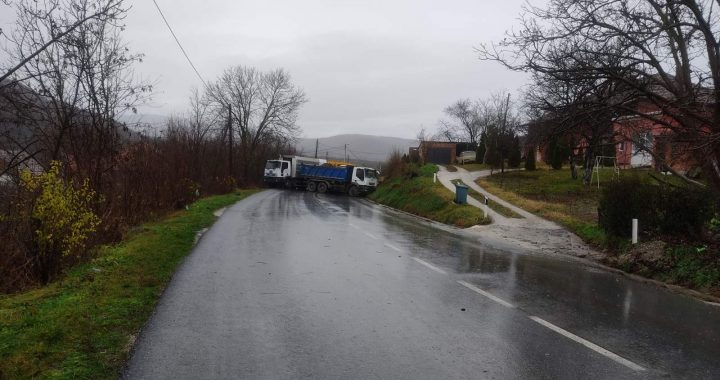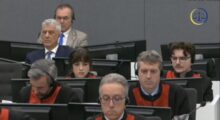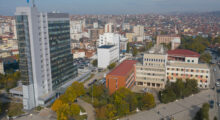Nebojsa Vlajic, a lawyer for former Kosovo police officer Dejan Pantic, who is suspected of an alleged attack on municipal election commission offices in North Mitrovica, and whose arrest sparked road blockades by Kosovo Serbs, told media that he still does not know his client’s location.
Vlajic said he has “some unofficial news and assumptions about Pantic’s whereabouts”, and added: “Everyone believes that he is at the base of the Kosovo Police”, near the Jarinje border crossing. “But whether it is really there or not, I don’t have any official confirmation.”
Vlajic said that he had addressed the EULEX mission about Pantic’s whereabouts and the conditions under which he is staying, noting that EULEX’s mandate is to supervise the judiciary in Kosovo.
“More than two days ago, I asked for an answer to those questions, they still haven’t answered,” said Vlajic, adding that he expects to receive answers as soon as possible.
“To get medicine, to enable him to make phone calls and visit family members and defence attorneys. These are elementary human rights, which do not depend, or should not depend, on the government,” he said.
Kosovo’s Minister of Interior, Xhelal Svecla, said Pantic was arrested for “organizing a terrorist attack on the premises of the Municipal Election Commission” in northern Kosovo. A Kosovo court issued a 30-day detention order.
Pantic, along with many of his Serbian colleagues, quit the Kosovo police on November 5.
The head of the EULEX mission in Kosovo, Lars-Gunnar Wigemark, said on December 15 that they do not know exactly where Pantic is and have contradictory information.
A day later, EULEX confirmed that it had received a request by Kosovo authorities “to facilitate the transfer” of Pantic to a detention facility.
EULEX said that, within their mandate, they were monitoring Pantic’s case and are in contact with the Ombudsperson and his lawyer.
“Through him [lawyer], the Mission was made aware of the request of the family to visit D.P. However, the Mission is not in the position to facilitate a visit by the family,” EULEX told BIRN.
“In line with our mandate, EULEX is monitoring this case to assess how it is handled by Kosovo’s authorities. We reiterate that it is very important for the fundamental rights of D.P. to be fully respected and in line with the Kosovo law,” it said.
EULEX also said that it had facilitated the transport of the medicines for Pantic by handing them over to the Kosovo Police Commander in Leposavić/Leposaviq. “The Kosovo authorities assured us that D.P. is supplied with the needed medicine,” EULEX said.
On December 16, Kosovo Ombudsperson Naim Qelaj said that after Pantic’s arrest, he requested information from the authorities to ensure that the “rights that any person who is arrested or detained are respected”.
“The Ombudsperson stressed that erecting barricades hinders freedom of movement of citizens and it is the authorities’ duty to ensure this right is respected as soon as possible,” the Ombudsperson said.
Several NGOs issued a press release expressing concerns that neither Pantic’s lawyers nor his family members had been allowed to visit him or contact him by phone.
“The conditions of his detention, as well as the prevention of contact with his family members and lawyers, represent a grave violation of his human rights and require the urgent involvement of the competent institutions in Kosovo, as well as the engagement of international missions and organizations that deal with human rights,” a press release from December 19 said.
Goran Rakic, president of the main Kosovo Serb party Srpska lista, told the media on Tuesday that Serb barricades will be removed after authorities release Pantic and other arrested Serbs, and the withdraw all security units from the North of Kosovo.
























